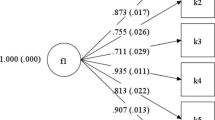Abstract
Previous investigations of the interpersonal response to depression and spinal cord injury have used different analog methods, and this has prevented reliable comparisons across studies. This study examined the effects of disparate analog methods on the interpersonal response to depression and spinal cord injury. Male and female college students were exposed to one of four analog presentations (in vivo,videotape, audiotape, and videotape without sound) in which a male spinal cord injured actor portrayed a depressed or nondepressed state during a brief interview. Subjects rated their own mood following the analog presentation and responded to a series of questions measuring their reactions to the actor. Subjects in the depressed condition experienced greater negative mood and reported more negative reactions toward the actor than subjects in the nondepressed condition. Subjects exposed to the in vivoanalog method experienced greater anxiety and hostility than those in the audiotape, videotape, or videotape without sound methods. There were no differential analog effects, however, for subjects' reactions to the actor. The presence or absence of actor depression and method of analog presentation did not interact with one another. These findings are discussed in terms of the interpersonal model of depression as it relates to spinal cord injury. The theoretical, methodological, and practical implications of the study are presented.
Similar content being viewed by others
References
Coates, D., and Peterson, B. A. (1982). Depression and deviance. In Weary, G., and Mirels, H. L. (eds.),Integrations of Social and Clinical Psychology, Oxford University Press, New York, pp. 169–194.
Coates, D., and Wortman, C. B. (1980). Depression maintenance and interpersonal control. In Baum, A., and Singer, J. D. (eds.),Advances in Ecological Psychology, Lawrence Erbaum, Hillsdale, N.J., pp. 149–182.
Coyne, J. C. (1976a). Depression and the response of others.J. Abnorm. Psychol. 85: 186–193.
Coyne, J. C. (1976b). Toward an interactional description of depression.Psychiatry 39: 28–40.
Elliott, T. R. (1987).Social and Interpersonal Consequences of Depression and Spinal Cord Injury, Doctoral dissertation, University of Missouri-Columbia.
Frank, R. G., Elliott, T. R., Wonderlich, S. A., Corcoran, J. R., Umlauf, R. L., and Ashkanazi G. S. (1987). Gender differences in the interpersonal response to spinal cord injury.Cogn. Ther. Res. 11: 437–448.
Frank, R. G., Wonderlich, S. A., Corcoran, J., Umlauf, R. L., Ashkanazi, G. S., and Wilson, R. (1986). Interpersonal response to spinal cord injury.J. Social Clin. Psychol. 4: 447–460.
Gotlib, I., and Beatty, M. E. (1985). Negative responses to depression: The role of attributional style.Cogn. Ther. Res. 9: 91–103.
Gotlib, I., and Robinson, L. A. (1982). Responses to depressed individuals: Discrepancies between self-report and observer-rated behavior.J. Abnorm. Psychol. 91: 231–240.
Hammen, C. L., and Peters, D. P. (1978). Interpersonal consequences of depression: Responses to men and women enacting a depressed role.J. Abnorm. Psychol. 87: 322–332.
Hastorf, A. H., Northcraft, G. B., and Picciotto, S. R. (1979). Helping the handicapped: How realistic is performance feedback received by the handicapped?Personal. Social Psychol. Bull. 5: 373–376.
Howes, M. J., Hokanson, J. E., and Lowenstein, D. A. (1985). Induction of depressive affect after prolonged exposure to a mildly depressed individual.J. Personal. Social Psychol. 49: 1110–1113.
Howes, M. J., and Hokanson, J. E. (1979). Conversational and social responses to depressive interpersonal behavior.J. Abnorm. Psychol. 49: 625–634.
Lynn, S. J., and Bates, K. (1985). The reaction of others to enacted depression: The effects of attitude and topic valance.J. Social Clin. Psychol. 3: 268–282.
Robbins, B., Strack, S., and Coyne, J. (1979). Willingness to provide feedback to depressed persons.Social Behav. Personal. 7: 199–203.
Strack, S., and Coyne, J. C. (1983). Social confirmation of dysphoria: Shared and private reactions to depression.J. Personal. Social Psychol. 44: 798–806.
Strenta, A., and Kleck, R. E. (1982). Perceptions of task feedback: Investigating “kind” treatment of the handicapped.Personal. Social Psychol. Bull. 8: 706–711.
Trieschmann, R. B. (1980).Spinal Cord Injuries: Psychological, Social, and Vocational Adjustment, Pergamon, New York.
Tucker, S. J. (1980). The psychology of spinal cord injury: Patient-staff interaction.Rehab. Lit. 41: 114–121.
Winer, D. L., Bonner, T. O., Blaney, P. H., and Murray, E. J. (1981). Depression and social attraction.Motiv. Emotion 5: 153–166.
Wonderlich, S. A. (1985).The Social Response to Depression and Spinal Cord Injury, Unpublished doctoral dissertation, University of Missouri-Columbia.
Zuckerman, M., and Lubin, B. (1965).Manual for the Affect Adjective Checklist, Educational and Industrial Testing Service, San Diego.
Author information
Authors and Affiliations
Additional information
This article is based on a dissertation submitted by the first author as partial fulfillment of the requirements for a doctoral degree at the University of Missouri-Columbia.
Rights and permissions
About this article
Cite this article
Corcoran, J.R., Frank, R.G. & Elliott, T.R. The interpersonal influence of depression following spinal cord injury: A methodological study. Journal of the Multihandicapped Person 1, 161–174 (1988). https://doi.org/10.1007/BF01102621
Issue Date:
DOI: https://doi.org/10.1007/BF01102621




